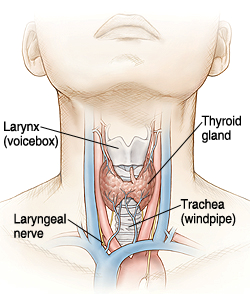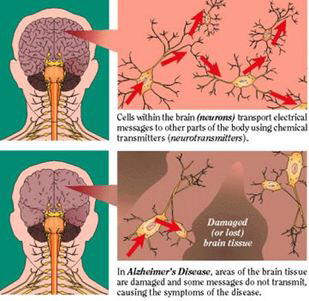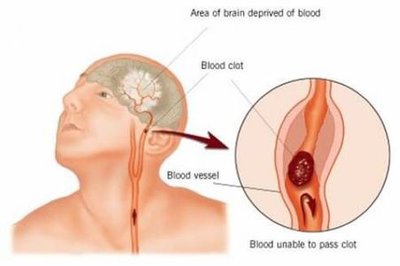 Image credit - Med Cor Image credit - Med Cor t can be difficult finding out if you have a thyroid problem. As someone who has had ongoing thyroid gland problems, for more than 40 years, I know this all too well. Initially suffering from an overactive thyroid gland many symptoms were classic yet my doctor failed to give the correct diagnosis. My weight was steadily decreasing, I seemed to be permanently racing around and, at its peak, I suffered severe diarrhoea and tummy problems. However, the doctor failed to do the simple diagnostic blood test needed and I visited various hospital departments for strange and unpleasant investigations for weeks. Eventually, after weeks of resting up, the condition subsided but it reared its ugly head again a few years later when I was under stress. This time though a diagnosis was correctly made -- Hyperthyroidism. Since then I underwent various treatments before eventually having radioactive Iodine treatment some years ago. This means that now my thyroid is under-active and daily supplementary medication is needed for the rest of my life. Regular blood tests are now also a fact of life. Hyperthyroidism is more dangerous than hypo though which is why doctors prefer the health problem to go the other way. So, with this background, I have told two friends over the years to see a doctor when they shared how they were feeling. One discovered she had an under-active thyroid gland and the other that she had thyroid cancer. Having had such varying symptoms over the years it is often easy now to spot thyroid issues in others. Despite this the last time I experienced major thyroid problems I mistakenly thought it was the menopause, due to the type of symptoms and my age. Here are some signs and symptoms which could mean that you have a thyroid problem and need investigation. Remember most times that your condition is easily treatable, although sometimes it may require surgery. Remember also that you must consult a medical professional for a correct diagnosis. Overactive thyroid or hyperthyroidism A fast heartbeat and or palpitations. Loss of weight but in rare cases increased weight due to over-eating. Loss of menstrual cycle, infertility or menstruation problems. Diarrhoea. Protruding eyes, in advanced cases. Pruritus, intense itching of the skin. Inability to sit still. Hyperactivity. Shaking hands and tremors. Hair loss. Swelling at the front of the neck. Underactive thyroid or hypothyroidism Slow heartbeat. Increased weight. Dull waxy skin. Sluggish, slow movements. Lethargy and lack of energy. Heavy menstrual bleeding. Changes in menstruation. Nail problems. Brittle and dry hair. Constipation. Thyroid cancer Unfortunately, in some cases, thyroid cancer may be diagnosed so a doctor should be consulted in all cases. Usually, there will be swelling at the front of the neck in cancers but even with that sign it still may not be cancer or malignant. Conclusion As with all these types of conditions symptoms can vary but if you have any vague feelings as described above it is best to have your thyroid function tested. A simple blood test will show if your thyroid is not working correctly. This small gland is responsible for regulating so much in your body it needs to function properly. Remember that worry and stress will aggravate your condition so try to stay calm. Also, depression can quite naturally accompany thyroid problems but may need treating as a separate issue. As a final thought, if you have close family members with thyroid disorders, especially your Mum, it may mean that you will follow suit. So check your family’s medical history. Please note: This is based on personal experience. You should always consult your medical professional. The writer's treatment was a few years ago and treatments are changing all the time. Check Web MD for the latest diagnosis methods and treatments available
0 Comments
|
Archives
March 2020
Categories
All
|






 RSS Feed
RSS Feed




